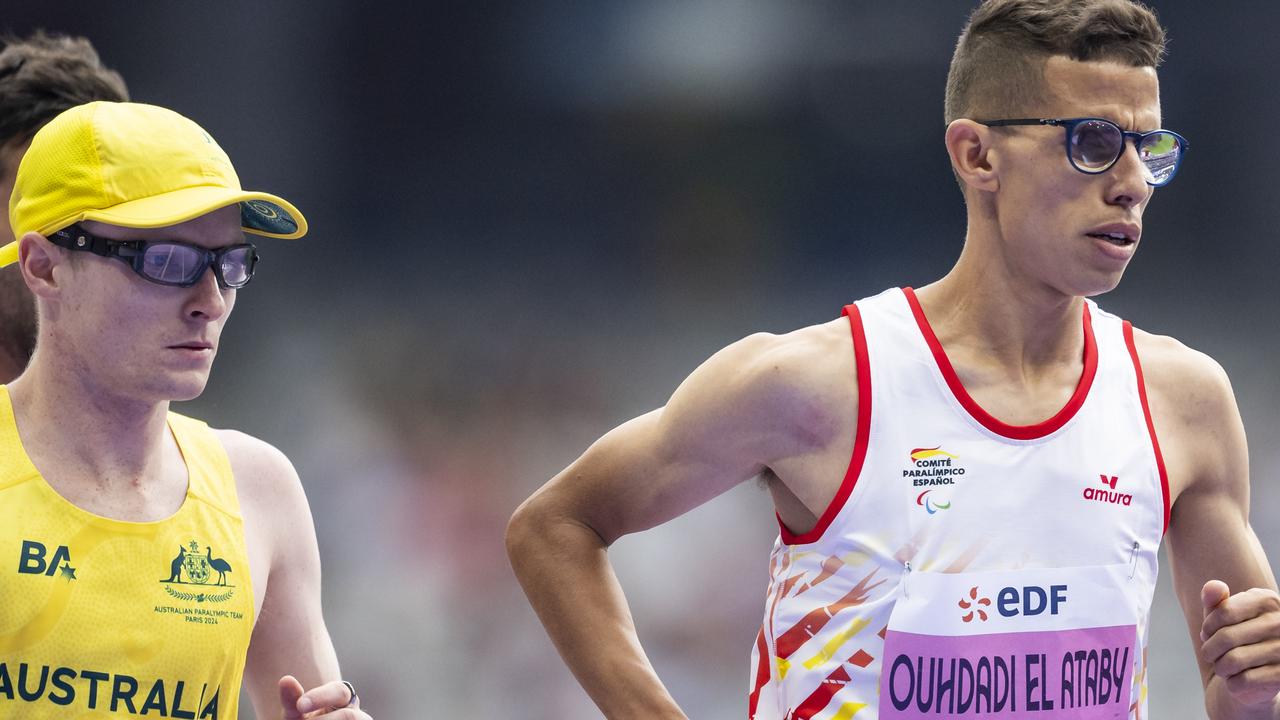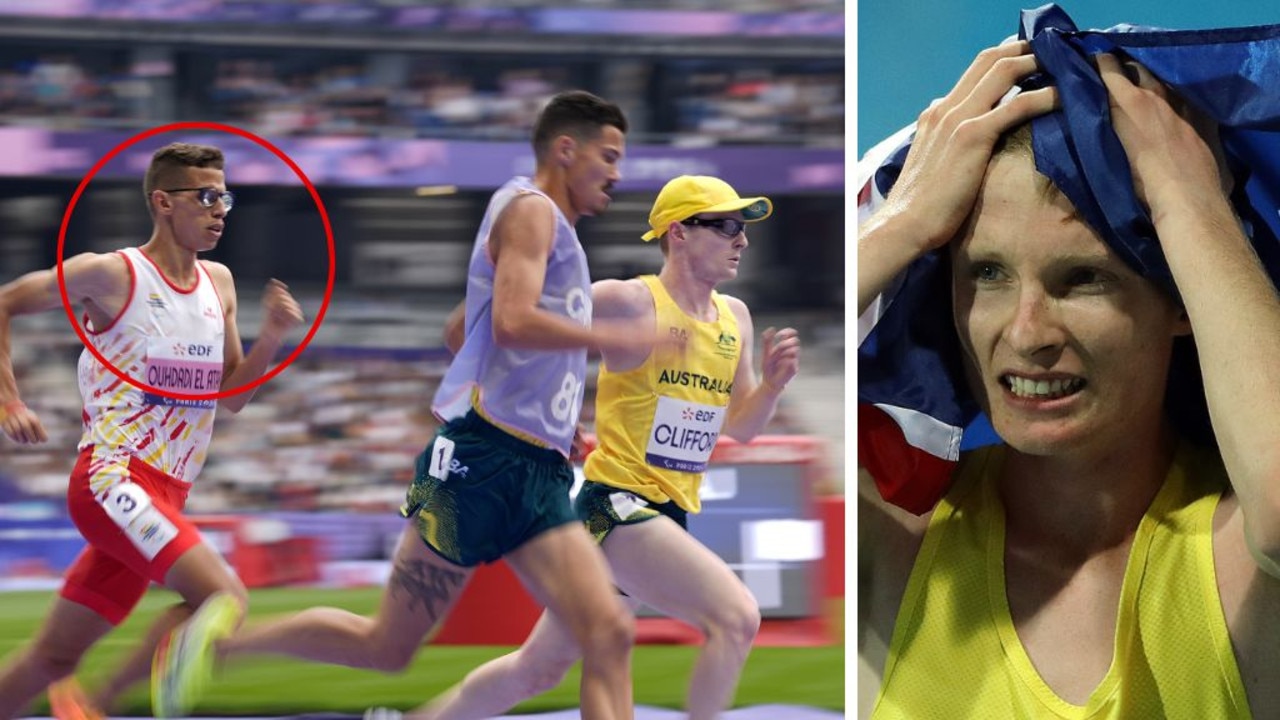‘It changed my world’: How chance conversation lured Paralympian back to rowing
After suffering injuries in a car crash as a teenager, rower Alexandra Viney was struggling to find where she fit in in sport. A chance conversation with a stranger led her back to her first love as a Paralympian.
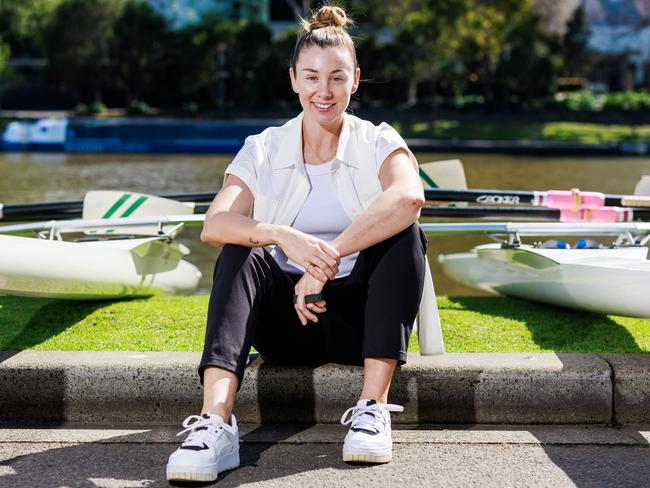
Paralympics
Don't miss out on the headlines from Paralympics. Followed categories will be added to My News.
For eight years Tasmanian dual-Paralympian Alexandra Viney wandered the sporting wilderness.
She felt lost, unable to find where she fit in after a high speed car accident, caused by a drunk driver at Launceston in 2010, left her with major injuries to her left elbow, forearm and hand.
A star 18-year-old rower at Launceston Church Grammar School at the time, it’s been an inspirational journey back to her sporting love as she prepares to compete at her second Paralympics in Paris in the PR3 mixed coxed four.
Incredibly, the person who guided Viney back to rowing is completely oblivious to how they dramatically changed her life.
She spent time as a football strength and conditioning coach, and women’s assistant coach, with St Joseph’s Football and Netball Club in Geelong.
Dressed in the pink trainer’s shirt, she was called over by a spectator for a chat at a game in May, 2018 which feels like fate.
“It was a conversation with somebody who didn’t speak to me like they had pity on someone with a disability. I didn’t have to justify my worth to them,” Viney told this masthead.
“That chat was basically ‘OK you’re not playing football right now, you’re coaching, but why aren’t you a para athlete?’
“That conversation was new to me, in eight years that was not the narrative of the story, and it changed my world. I knew I could be a part of sport, I just didn’t know where I fit in.
“I thought they wanted to talk about the game, but instead they asked me why I wasn’t playing and it was a random, chance conversation that changed my life.”
Now based in Melbourne, Viney is passionate about changing public perception of how athletes with disabilities are viewed. The stereotypes and borderline disrespect she dealt with for eight years.
Working with young footballers at St Joseph’s helped reignite the desire to compete.
“Being someone who had acquired my disability in that car accident, it was society’s perception of what it meant for someone to have a disability that actually stopped me from being involved in sport,” she said.
“It wasn’t from lack of trying or I wasn’t interested, it was just the pathway wasn’t as clear cut as it was for an able-bodied 18 year old.
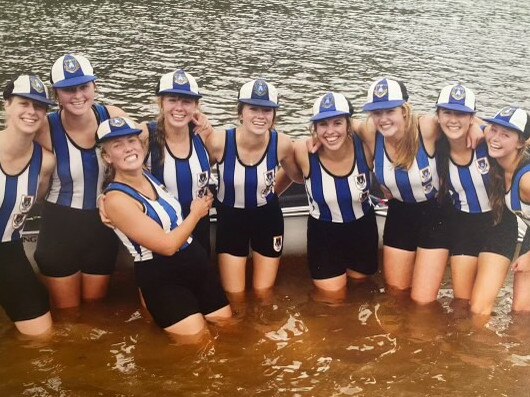
“Because I didn’t fit the textbook of what the pathway looked like, especially in rowing, those doors just seemed to be slammed shut on me.
“Working my way back into sport in another direction, which ended up being coaching, that was me desperately trying to stay involved in sport.
“I went down the pathway of football and ended up working quite closely with women’s footballers.
“I resonated quite strongly with those athletes because they were finally getting their chance to be an athlete. I wanted it for myself, and I wanted it for them as well.”
After that fateful conversation with a spectator, it took about six months for Viney to get back into a boat in November, 2018.
“It took that long to unpack all the ableism that had been compressed on top of me for eight years, battling to find my way in sport,” she said.
“For six months I was to-ing and fro-ing about how I can compete in rowing, but when I did finally sit in the boat, three months later I made the national team.
“For eight years I didn’t know where I fit into sport and where I belong. But in three months I cemented my place on the Australian team and fully embraced everything I wanted to be.
“It felt like I was at home, sitting in that boat. My brain doesn’t pass my message down to my left arm the same way it used to, so I had to relearn a movement pattern that didn’t come as natural to me, or how I learned to row at school eight years prior.
“That was a challenge, but at school I always loved rowing and it made sense to me.
“My disability doesn’t change anything, I just express my power and competitiveness in a different way to what the textbook describes.”
A PROUD AMBASSADOR
As an openly gay athlete, Viney is passionate about spreading the message sportspeople can only reach their full potential until they embrace themselves.
The 32-year-old is an ambassador for Proud 2 Play, which promotes LGBTQI+ inclusion in sport and recreation, and she also works closely with Guide Dogs Australia.
“It’s so important to allow athletes and the community to be everything they need to be,” she said.
“If you’re trying to hide parts of yourself, especially as an athlete, you can’t possibly be putting all your energy into your sport, and therefore your performance will suffer.
“I’m very grateful to have found an organisation that is just for people.”
Viney believes the explosion in the popularity in women’s sport is helping drive those important conversations.
“The way we are embracing women’s sport is such a powerful movement,” she said.
“There are people who have put so much energy into being themselves and embracing those opportunities.
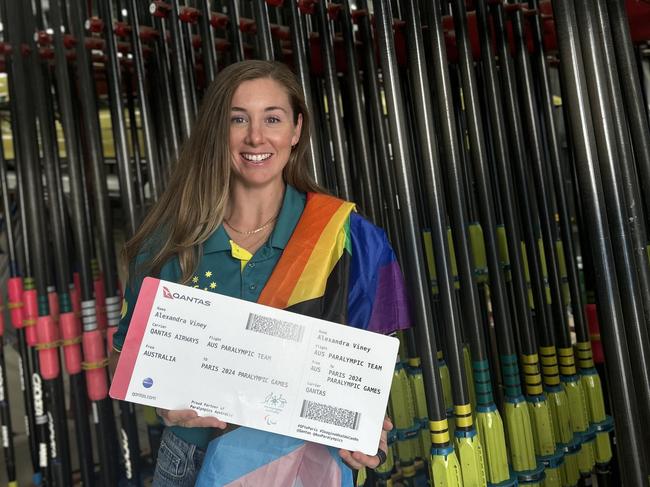
“We’re going to see generations of people who will have opportunities that even I would love to have had growing up.
“I’m so invested in seeing the Tassie Devils develop. I signed up as a member immediately, I’m trying to get my hands on a jersey as we speak. To see young Tasmanians, especially the women, have the opportunity to represent our state is immense.”
Viney said she would love to have some involvement with the franchise if an opportunity arose.
“Last year I was put on as a training partner for the Hawthorn AFLW girls. A couple of times a week I’d do gym with the team, have dinners with them on Thursday and spend time in meetings, working with the development players – just to integrate with a team was amazing. Down the line if there is a chance to spend time with the Tassie Devils, it would be unbelievable.”
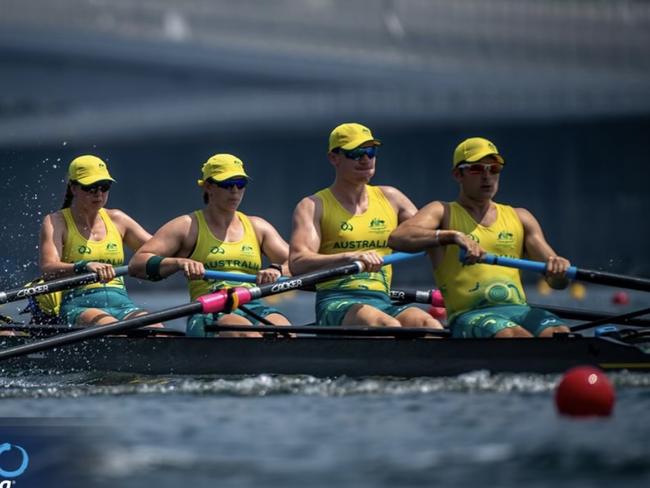
A DESIRE TO MEDAL
Viney was part of the mixed coxed four crew which finished fourth at the Tokyo Paralympic Games.
She’s tired of telling the story of just missing out on a medal, and is desperate to get on the podium on September 1.
“Every time someone mentions fourth, as if it wasn’t bad enough before, this year seems to sting even more,” she said.
“My crew and I are based in Canberra now out of the AIS, and this is the first time the crew has been centralised.
“We’ve been in Canberra since the beginning of April so to have that time together is immense. In the lead up to Tokyo we rowed together for about four days in six months, so we’re excited to see that synergy put into practice.
“The heat we experienced in Tokyo, I don’t think anything will come close. Even though Paris is expected to be warm, competing is what we love.
“We spend so much time training and so little time actually racing that you enjoy it so much.”
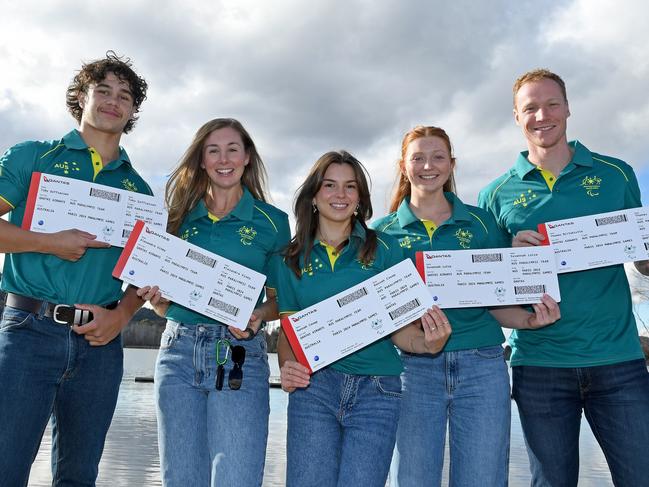
THE QUEST FOR EXPOSURE
Paralympic athletes put just as much effort, devotion, time and money into achieving their dreams as anyone.
Viney would love to see that translated more equally with publicity.
“Most sports in Australia have a para aspect, but it’s the media and broadcasting we’re not quite seeing yet,” she said.
“There are some immense athletes out there who are putting on a show, breaking records and pushing the limits, and we’re just not seeing it yet.
“What we’re seeing in women’s sport is exactly the same as what we need to see for people with a disability.
“What we are achieving as athletes with disabilities is incredible. We’re entertaining and we have so much life and character, we just miss out on seeing it in the media and in the news.
“I don’t want it to take eight years for someone else to have the conversation I had.
“If we can start that conversation now and we have para athletes from Tassie who can see the opportunities now and start their development, we’ll have the strongest home games ever (at Brisbane 2032).
“Opportunities are for all and that’s all I ever wanted, to change that narrative for society is so important.
“My good friend (multiple Paralympic medallist) Jaryd Clifford say its perfectly. Every four years we get to see a glimpse of the world when it’s truly accessible, you get to see people for who they are and what they’re capable of.
“For eight years I missed out because people wanted to put me in a box, but I wanted to stand on top of it and say to the world I can do this.”
Originally published as ‘It changed my world’: How chance conversation lured Paralympian back to rowing

